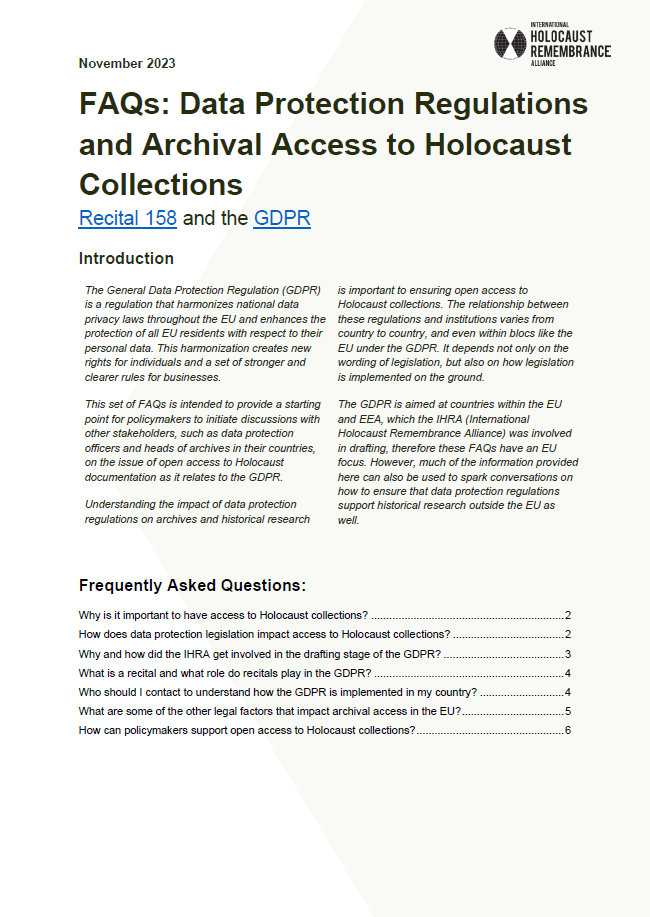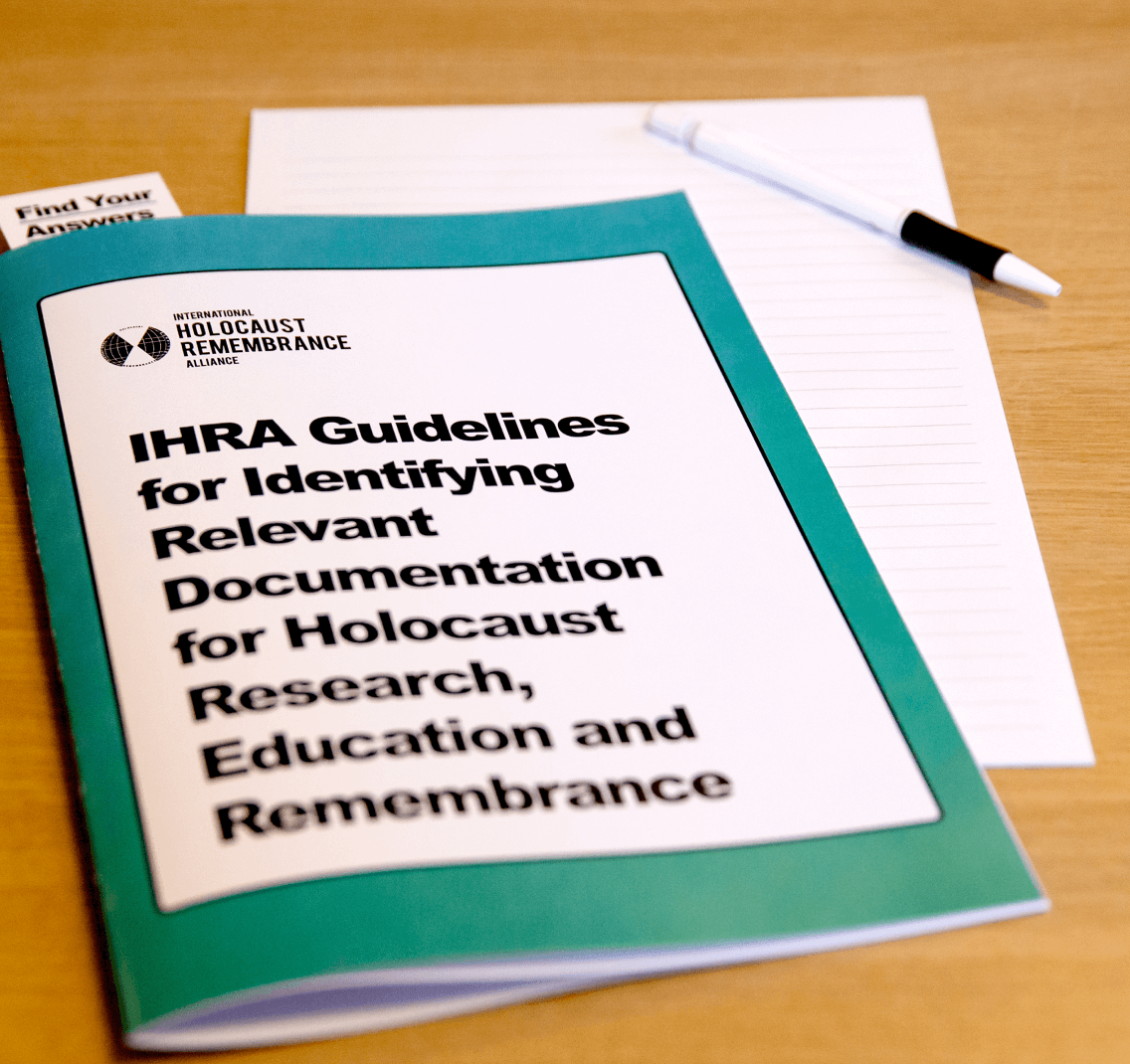
FAQs: Data Protection Regulations and Archival Access to Holocaust Collections
This set of FAQs helps policymakers start discussions with other stakeholders, such as data protection officers and heads of archives in their countries, on open access to Holocaust documentation as it relates to the GDPR.
These FAQs cover:
- Why is it important to have access to Holocaust collections?
- How does data protection legislation impact access to Holocaust collections?
- Why and how did the IHRA get involved in the drafting stage of the GDPR?
- What is a recital and what role do recitals play in the GDPR?
- Who should I contact to understand how the GDPR is implemented in my country?
- What are some of the other legal factors that impact archival access in the EU?
- How can policymakers support open access to Holocaust collections?

Why is it important to have access to Holocaust collections?
The Nazis and their collaborators not only murdered Jews, Roma, Soviet POWs, political enemies and others; they did so with the intention of erasing all traces of their existence. Every document pertaining to life before, during, and after the Holocaust is therefore extremely valuable. Such material tells us not only about the victims, but also about the perpetrators.
More than 75 years after the end of the Second World War, it remains difficult to locate and gain access to documentation related to the Holocaust. Access to Holocaust collections
helps foster open and democratic societies that deal openly and accurately with the past.
Open access means researchers and the public can find and use Holocaust-related documentation for commemoration, education, research, genealogical, and personal family inquiries. Open access does not supersede privacy regulations, but rather encourages archives to implement these prudently where Holocaust documentation is concerned.
Sign up to our newsletter to
receive the latest updates
By signing up to the IHRA newsletter, you agree to our Privacy Policy


